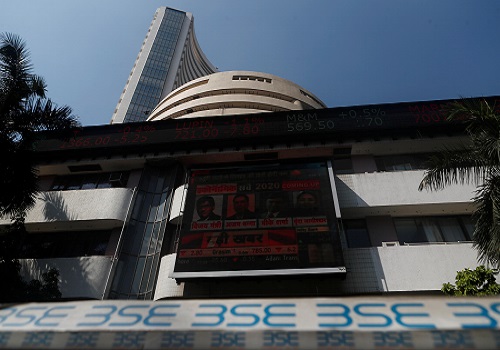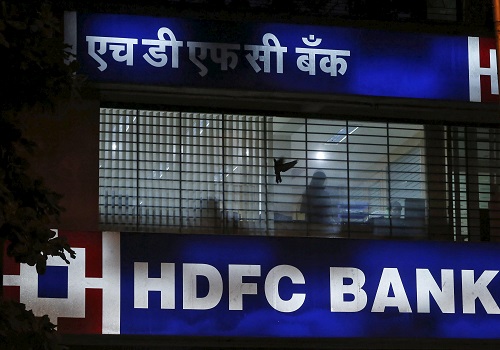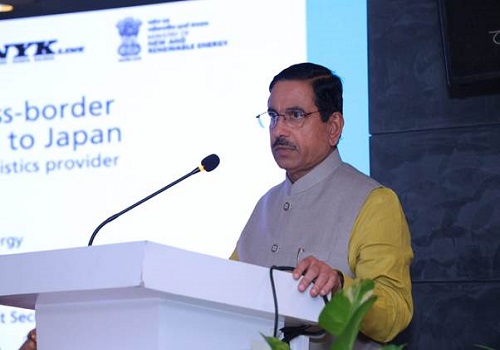India central bank widens scrutiny of credit `exuberance`, sources say

India's central bank is stepping up its fight against "exuberance" in retail lending, targeting new areas including mortgage-linked "top-up" loans, on concern about rising risks to the financial system, a dozen sources said.
The Reserve Bank of India (RBI) is tightening its supervision of the industry and nudging individual lenders to rein in credit in areas where it sees increased risks, although it has not taken any formal enforcement action, the sources with direct knowledge of the process told Reuters.
The RBI has taken a string of measures over the past six months to rein in some retail lending by banks and non-bank financial firms, and publicly warned them against "all forms of exuberance".
But the new scrutiny, essentially a shot across the bow for financial firms, marks a change for the central bank, which as recently as September said India's credit expansion did not point to building systemic stress.
"RBI is following a four-step approach on supervision now - monitor, warn, penalise and then act," one source said. "They want to give entities a chance to course-correct based on public or specific warnings, but also act when warranted."
The RBI typically uses moral suasion - speeches, calls to bank executives, individual meetings - as initial steps to prod banks, before considering more assertive enforcement.
In addition to the mortgage top-ups, the RBI is cautioning lenders about the risks of algorithm-based credit models and nudging a few institutions to slow co-lending, the sources said.
DON'T WAIT FOR THE HOUSE TO CATCH FIRE
The sources - including people familiar with central bank thinking, bankers and others in the industry - asked not to be named given the sensitivity of the matter. The RBI did not respond to an email seeking comment.
"We do not wait for the house to catch fire and then act," RBI Governor Shaktikanta Das said in December when asked about tougher rules the bank had announced for personal loans.
The central bank aims to ensure risks to the system do not escalate amid global economic uncertainty, analysts say.
"The RBI is also setting out regulatory expectations from the industry through its recent supervisory actions, which can act as a guidance for the entire sector," said Anil Gupta, senior vice president and co-group head of financial-sector ratings at ICRA.
Credit extended by India's banks has been rising about 16% annually, more than double the economy's scorching 7.6% forecast growth for the financial year ending this month, despite 2.5 percentage points of RBI interest-rate hikes over the past two years.
The central bank in November raised risk weights on personal loans, credit cards and bank credit to non-banking firms on signs of above-trend growth in those segments.
It has taken action against a two non-bank firms in the recent past, one for inadequate loan-related due diligence and the other for deficiencies in providing loans towards public issue subscriptions.
Banks' lending margins are expected to hold up this quarter, but the impact of the RBI's credit curbs are likely to be more pronounced in the coming three months, banking sources say.
'SOURCE OF RISK'
The RBI is now closely monitoring mortgage top-ups. They are meant to fund home improvements or additions, but banks are advertising them for expenses such as weddings, vacations and business expansions.
"One can take a top-up of a home loan and start investing the share market or use it for consumption purpose," said Prashant Kumar, managing director and CEO at Yes Bank, a commercial lender. "That could potentially be a source of risk in terms of repayment."
Fintech and banking sources say the RBI has asked banks to conduct rigorous audits on algorithm-based lending models, which use indicators from cash-flows to home address to generate nearly instantaneous approvals for personal loans.
Central bank officials have asked multiple algo-based loan providers to ensure their models were "properly tested and validated", said a senior executive in the risk division of a private bank.
The RBI has urged some shadow banks and small finance banks to limit to 20% the growth of loans made through co-lending agreements, which allow banks to jointly lend to individuals to spread the credit risk, another source said.
Unsecured personal loans were up 21% at the end of January from a year earlier, central bank data shows.
























